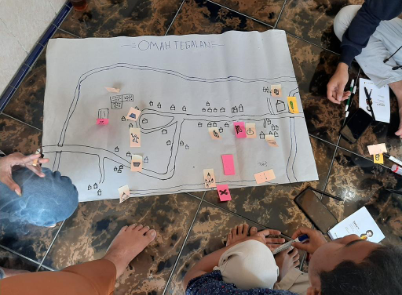Main Article Content
Abstract
The Borobudur Temple is one of Indonesia’s tourist destinations, which has long been famous among local and foreign tourists. The Indonesian government has even designated the Borobudur compound as a super-priority tourist destination. However, the existence of the Borobudur Temple has not had much effect on the welfare of the people who live in the surrounding villages. This community service activity was conducted to build the capacities of young people in some villages around the Borobudur Temple area. This activity aimed to improve the soft skills of young people. More specifically, it was designed to guide them to be aware of themselves and their communities, gain the skills to communicate with others, identify and map the potentials and challenges in their communities, and develop action plans for their communities. This program was carried out in the form of a workshop, adapting the active citizen modules developed by the British Council. The participants claimed that this workshop was useful for them, especially in making them more confident, helping them realize their existence, increasing their ability to communicate with others and build networks with people from different backgrounds, enhancing their understanding of their community and environments, and raising their motivation in making positive social changes.
Keywords
Article Details

This work is licensed under a Creative Commons Attribution-NonCommercial 4.0 International License.

